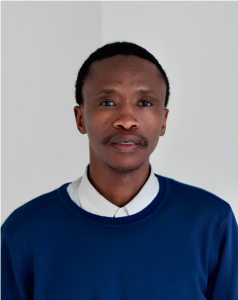Faculty members Rev. Sivuyile Lurai and Rev. Thapelo Khumalo gave some brief thoughts on issues they’ve been questioned on recently by GWC students.
How does one cope with the crippling burden of “black tax”?
The concept of “black tax”, with its unfortunate term of phrase, is really part of a natural ecosystem that exists, when children take up the responsibility to care for their parents’ needs. It honours the sacrifices made by their parents, which enabled them to get to a firmer footing in life, and should be seen as giving, or, at most, gracious obligation. God has after all gifted us with our families, and the beauty of the African culture is that siblings care for one another in the spirit of common sense. This support can, however, feel like a tax when the relationship is one of expectation and demand, which, sadly, can be a reality when it comes to fallen man. In these instances, I would caution against “feeding greed”, and assert that “each of you should give what you have decided in your heart to give” (2 Cor 9:7a). This response does not mean to simplify the pressure that young people feel, and it certainly requires prayer, wisdom, and personal reflection to discern what a biblical response looks like in each unique situation.

Response by faculty member Rev. Sivuyile Lurai
How does Africa relate to the West, particularly in the context of ministry and in Bible colleges?
There seems to be a push-back against western culture, not just in South Africa and Africa, but even in western countries, based on the history of colonialism and oppression. This has become a big talking point both in and outside our lecture halls and is an opportunity for open discussion: Why do we do things in a Western way in an African college? Should we not teach subjects in a less rationalistic, concept-driven (typically Western) way, or eat food that represents our culture? There are many good, practical suggestions made that we have implemented. One example is that students can now choose to preach in their home language, which is especially helpful if they are returning to a non-English speaking church for ministry. Another example is that lecturers are more deliberate in prescribing and recommending African sources and scholars.
I do affirm that we need wisdom to work out what the best approach to take is. I speak to students about acknowledging that we are lying on the bed that was made; the hurt and pain caused by colonial oppression is not instantly healed. People will be angry, and issues will be sensitive; that is the consequence of sin. The people that brought Christianity to Africa certainly weren’t faultless, and that’s the Bible – God using broken people to grow His kingdom. It is painful to experience the brokenness around us, but the apostle Paul reminds us that “we do not grieve like the rest of mankind, who have no hope” (1 Thessalonians 4:13b), as we await God’s redeemed world. Christ himself lived as a jew under Roman oppression. He did not rebel, but lived gracefully and peacefully, and that is our model.

Response by faculty member Rev. Dr Thapelo Khumalo
